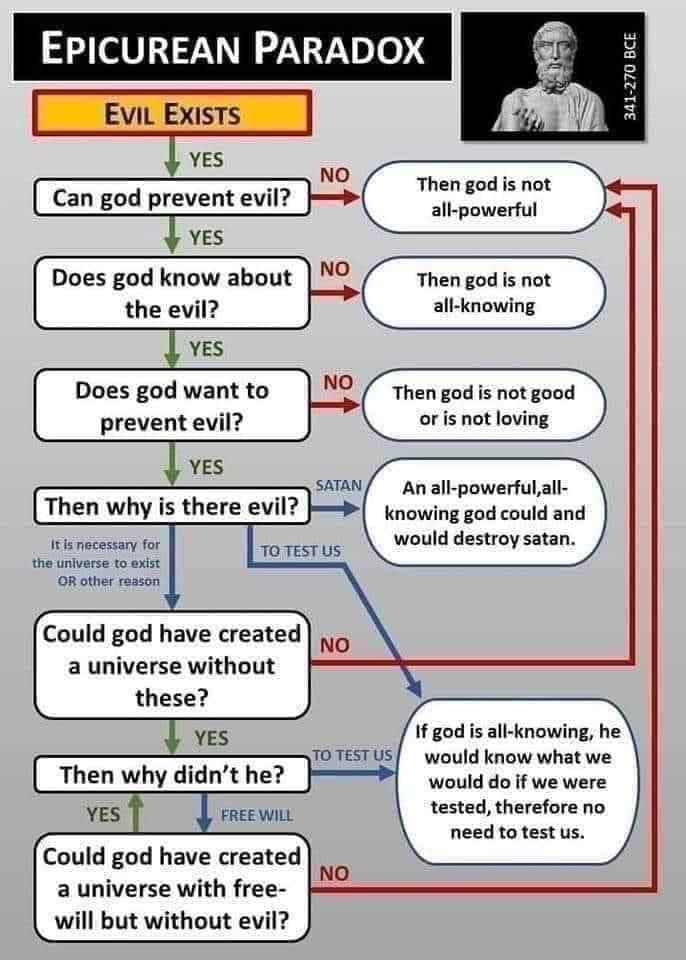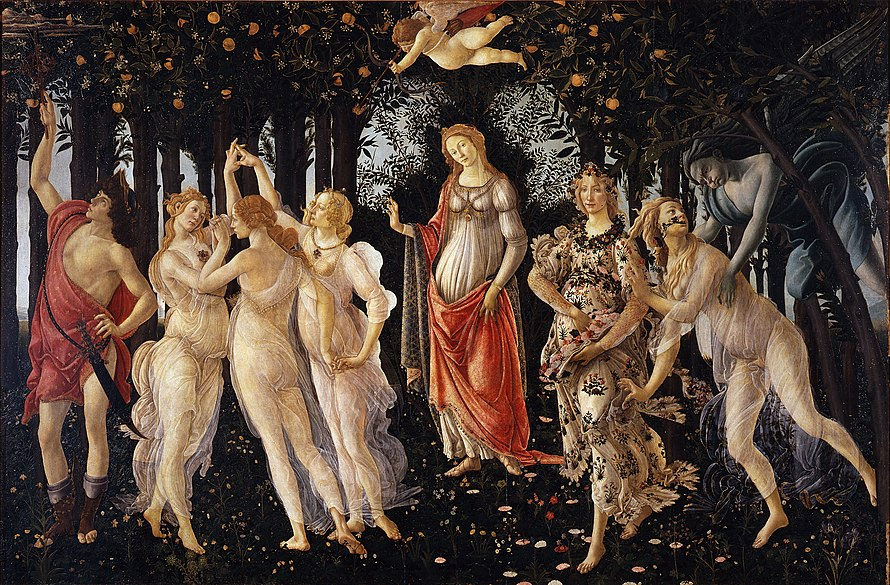-
Intro
- BOARD: A king in court with his two princesses
- Two princesses were born to a king. They stood a chance to rule the world one day. The king’s acolyte put them in disguise for their protection. A new order conquered the empire. Captors took the disguised princesses to their remote hideout for their own needs. They renewed their disguises to save themselves from destruction. One day, an intrepid knight came up the hill to free them. But he did so for their beauty, not for their royal pedigree. His actions allowed them to rule the world that was their birthright.
- BOARD: The written text of the ‘true’ story
- This is a true story, only with false characters
- True stories about people are the most compelling
- But true stories about ideas have had a far greater impact on the world
- BOARD: The written text is edited as per below
- Let’s rewrite the story with the actual characters
- Two ideas were born to Epicurus. They stood a chance to rule the world one day. Lucretius put them in a poem. A new order conquered antiquity. Monks took the disguised ideas to their monastery for the parchment they were written on. They were rewritten to be saved from destruction. One day, an intrepid book hunter came up the hill to free them. But he did so for their use of beautiful Latin, not for their content. His actions allowed them to enter the mainstream discourse for good.
- BOARD: The rewritten story becomes a timeline, sentence by sentence.
- The true story spans 2000 years and the entire historical saga of the Western world.
-
Two Ideas were born to Epicurus
- BOARD: Map of Greece with dots for ancient cities.
- Our story begins in Ancient Greece
- A loose collection of city-states where locals were experimenting with domains like literature, philosophy and science
- On the island of Samos, a boy named Epicurus grows up. He’s given an education typical of ancient Greece. He becomes versed in things like geometry and rhetoric.
- BOARD: Map expands to the east to include Anatolia and the Levant
- When Epicurus was a boy, Alexander the Great crossed the Hellespont into Asia and shifted the mindset of Epicurus’ generation to understand the greater world beyond Greece
- BOARD: A chalkboard outlining Epicurus’ key ideas
- Atomism
- Like his predecessor Democritus, Epicurus believed that the world was made up entirely of atoms and voids
- He believed that this mix extended infinitely out into the universe
- He believed that the motion of atoms was largely determined, but humans had the ability to change the trajectory of atoms through free will
- So how should humans use that free will?
- Humanism
- Epicurus was a hedonist, but in the classical sense. Nowadays hedonism gets a bad wrap
- He thought that pleasurable things were morally good and painful things were morally evil
- Thus the purpose of life could be to do maximum good and minimum evil
- The ultimate goal being a permanent state of chill, free from all pain and suffering
- He believed that death was the end for humans. God was not central.
- Therefore, humans shouldn’t fear divine punishment, but strive to live a simple life, free from pain
- BOARD: A gravestone with the worbs being written
- Many ancient gravestones contain the Epicurean epitaph: I was not; I was; I am not; I do not care
- Unfortunately, very few of Epicurus’ original works survived. His princesses needed a protector
-
Lucretius put them in a poem
- BOARD: Shifting map from Greece to Rome
- The power balance in the ancient world would eventually shift from Greece to Rome
- The Romans came in contact with Greeks, adopted their customs and conquered them
- The lineage of antiquity ideas remained unbroken
- The protector of Epicurus’ ideas ended up being Lucretius
- Very little is known of his life, and his grand poem, On The Nature of Things, is his only surviving work
- BOARD: Collage of archaeological artifacts
- We know of the ancient world through rubble and fragments
- Very little of Epicurus’ original work survives
- It took the synthesizing of his ideas into a 7,000-verse poem, to make it to us today
- And what a poem…
- It weaves together art and science
- The famed philosopher Cicero called it “rich in brilliant genius, yet highly artistic”
- It’s written in 7,400 line hexameter - 6 beat lines that don’t rhyme.
- It is a hard book to penetrate, but hidden inside are the gems of Epicurus, strengthened through vivid imagery
- BOARD: Botticelli’s Venus
- It opens with a hymn about Venus, the Roman goddess of love, beauty and prosperity:
- Mother of Rome, delight of Gods and men,
- Dear Venus that beneath the gliding stars
- Makest to teem the many-voyaged main
- And fruitful lands—for all of living things
- Through thee alone are evermore conceived,
- Through thee are risen to visit the great sun—
- Before thee, Goddess, and thy coming on,
- Flee stormy wind and massy cloud away,
- For thee the daedal Earth bears scented flowers,
- For thee waters of the unvexed deep
- Smile, and the hollows of the serene sky
- Glow with diffused radiance for thee!
- One doesn’t know why as the rest of the poem can be read as a refutation of the gods
- How it mentions Atomism
- Epicurus’s devoted follower, the Roman poet Lucretius, cites the gradual wearing down of rings from being worn, statues from being kissed, stones from being dripped on by water, and roads from being walked on in On the Nature of Things as evidence for the existence of atoms as tiny, imperceptible particles.[95]
- How it mentions Humanism
- Not all good
- mention some outlandish claim in the book
- For a secular work, it took a string of miracles for it to survive so long
-
Monks took the disguised ideas to their monastery for the parchment they were written on
- The first miracle is the surviving the fall of Rome
- In XXX, the city was sacked, it never regained it’s splendor
- The libraries of the Hellenistics decayed along with the books
- But there was a new class of humans that needed books
- Christianity brought with it monks
-
They were rewritten to be saved from destruction
-
Outline
- The book
- How they started and evolved
- What purpose they serve
- Knowledge transmission and preservation
- Medieval Europe
- Description
- The Teeth of Time
- The Monks
- Then something changed…
- The Renaissance
- Renaissance literally means rebirth
- of ideas from antiquity such as humanism - putting humans as more important than god
- Previously known and then lost ideas
- They survived centuries of war, decomposition and being considered blasphemy to come back to us
- The Seeds of the Renaissance
- We’re used to big battles indicating the start and end of periods
- For the Renaissance, this is the fall of Constantinople to the Ottomans
- But there’s a problem, the Renaissance is not about any one kingdom, it’s about ideas
- And ideas don’t live on the battlefield, they spread through speech
- And books are codified speech from long ago
- Book Hunters
- In genetics, communities are insular, but 1 in X people travel far. The monasteries are the insular communities and book hunters take the ideas far
- Meet Poggio
- He has a unique career - book hunter
- He’s on the hunt for latin examples
- but what he finds unleashes a force so powerful it undermines his faith
- and we’re still living with the ripples today, for better or worse
- Poggio’s Discovery
- in 1417
- Poggio just wanted a great example of latin, but he’s unleashing something that’ll undo his faith’s dominance over his realm
- callback to Venus in 1st line of poem - famous painting primavera by botticelli, made 60ish years after the poem was rediscovered
- Renaissance literally means rebirth
- The Map of Knowledge
- Show other ways in which ancient books were protected and revived
- Islam protected knowledge via hubs in Baghdad and Cordoba
- Re-entered the Catholic world through Toledo
- Science Proves The Poet Right
- Atomism
- Heavily influenced Pierre Gassendi
- Brownian Motion
- State what actually happened
- A remarkable description of dust particles in verses 113–140 from Book II. Lucretius uses this as a proof of the existence of atoms
- Erwin Mueller was the first person to visually see an atom
- Now we have the 2018 pic of a strontium atom to refer to
- Atomism
- Society Proves The Poet Right Too
- Humanism
- Influenced many in the build of Christian humanism
- universal human dignity, freedom, and happiness
- sourced from Jesus’ teachings
- universal human dignity, freedom, and happiness
- Look at Index for Erasmus - talks of Epicurus
- Influenced many in the build of Christian humanism
- You need only look at the ‘life, liberty and pursuit of happiness’ of the US consitution to see the legacy
- Humanism
- The book
Parking Lot

- d
Book TOC
-
The book hunter
-
The moment of discovery
-
In search of Lucretius
-
The teeth of time
-
Birth and rebirth
-
In the lie factory
-
A pit to catch foxes
-
The way things are
-
The return
-
Swerves
-
Afterlives
-
Visual Structure
- Timeline of Western History
- Famous painting of Venus
- Strontium
- Silver islands - 1 atom thick


